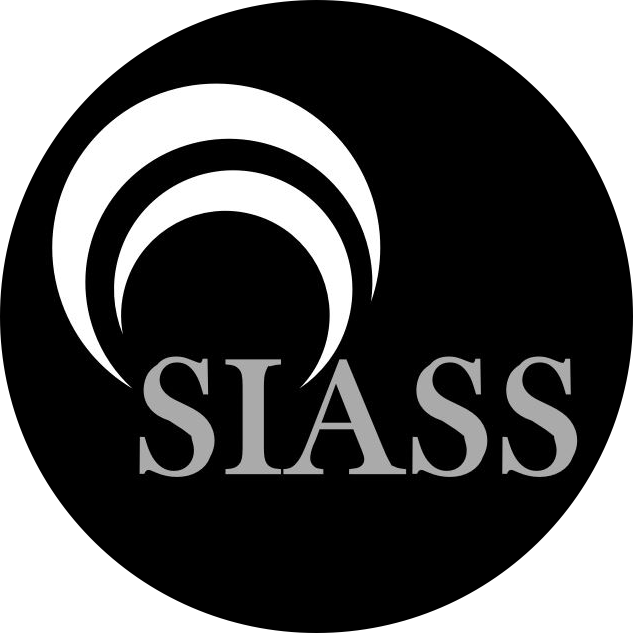Understanding the Importance of Surveillance in Private Investigations
- SIASS

- May 28, 2025
- 4 min read
Updated: Aug 27, 2025
In a world where privacy is constantly challenged, surveillance has become an essential tool in private investigations. The ability to observe, gather information, and verify facts plays a crucial role in uncovering the truth. Whether it's for personal safety, legal issues, or to combat corporate espionage/employee disloyalty concerns, surveillance services are vital to effective private investigative work. This blog post explores the significance of surveillance in private investigations, types of surveillance, legal considerations, and how to choose the right investigator.
What Are Surveillance Services?
Surveillance services encompass a range of techniques used by investigators to monitor activities, gather evidence, and collect information discreetly. These services can be employed by private investigators, law enforcement agencies, or businesses in various situations. Understanding how these services operate enables clients to make informed decisions when hiring a private investigator.
In the realm of private investigations, surveillance can include physical observation, electronic monitoring, and even the use of technology such as GPS tracking. Each method offers unique insights and can be tailored to meet specific situations.

The Role of Surveillance in Private Investigations
Surveillance is a critical component of private investigations for several reasons.
Evidence Gathering: One of the main purposes of surveillance is to gather concrete evidence that supports claims or suspicions. This can be particularly important in legal cases, where having solid proof can sway outcomes.
Monitoring Behaviours: Surveillance allows investigators to monitor behaviours over time. This is crucial in cases involving infidelity, fraud, or workplace misconduct. Understanding a person's patterns can reveal more than one-time interactions.
Credibility: In many instances, having visual evidence strengthens the credibility of a client's claims. Whether it's video footage or photographic proof, tangible evidence often persuades authorities, courts, or business partners.
Risk Assessment: Surveillance can also aid in assessing safety and security risks. This can involve monitoring a location to identify potential threats or ensuring that individuals are safe in their environments.
The successful execution of these roles depends significantly on the skill and experience of the private investigator conducting the surveillance.
What is the Most Common Type of Surveillance in the Private Investigator Industry?
The most common type of surveillance utilised by private investigators is physical surveillance. This involves an investigator following or observing individuals in real-time to gather data about their activities, movements, and interactions.
Physical surveillance can take various forms:
Foot Surveillance: An investigator may follow a subject on foot to observe their actions without drawing attention.
Vehicle Surveillance: Using a car, an investigator can track a subject's movements over longer distances, making it easier to document interactions with others or visits to specific locations.
Static Surveillance: This approach involves an investigator positioning themselves in a fixed location to observe. This method is useful for monitoring a particular place, such as a home or business.
These techniques, when executed with discretion, allow for effective information gathering. The key is to balance presence with subtlety to avoid alerting the subject.

Legal Considerations Surrounding Surveillance
While surveillance is a powerful tool, it is not without legal boundaries. Understanding the legal considerations surrounding surveillance is crucial for both private investigators and clients.
Privacy Laws: Different jurisdictions have varying privacy laws that restrict how surveillance can be conducted. Investigators must ensure they do not infringe upon an individual's right to privacy during their operations.
Consent: In some cases, obtaining consent from the subject being surveilled may be necessary. This can vary by location and type of case. Ignoring this can lead to legal repercussions.
Data Usage: The way data collected through surveillance is used can also come under scrutiny. It is essential to understand how this data can be legally utilized in legal proceedings or shared with clients.
Documentation: Keeping accurate records of surveillance operations can provide accountability and legal protection for private investigators. Comprehensive reporting also supports clients in their decision-making processes.
Navigating these legal landscapes can be complex, so working with an experienced investigator who understands the laws and regulations is vital.
How to Choose the Right Private Investigator for Surveillance Services
When seeking surveillance services, it is essential to select the right private investigator. Here are some practical steps to help you make an informed decision:
Research Experience: Check their track record to ensure they are suitable to handle your case.
Read Reviews: Client testimonials and reviews can provide insights into the investigator’s capabilities and the quality of their services.
Discuss Your Needs: Clearly communicate your requirements and expectations during initial consultations. A good investigator will discuss the best surveillance strategies and tailor their approach to your specific situation.
Understand Costs: Surveillance services can vary in pricing. Ask for a detailed breakdown of costs to avoid unexpected charges.
Check Legal Compliance: Ensure that the investigator has a clear understanding of the legalities surrounding surveillance in your area. This protects both you and the investigator from potential legal issues.
By following these steps, you can effectively select an investigator suited for your needs and ensure your surveillance operation is successful.

Final Thoughts on Surveillance in Private Investigations
Surveillance is an integral part of private investigations, offering invaluable insights and evidence across various situations. Whether you need to confirm suspicions of infidelity, investigate fraudulent activity, or ensure safety, understanding the importance of surveillance services is crucial.
Choosing the right private investigator to conduct surveillance is key in obtaining the results you need while remaining compliant with legal regulations. By being informed and taking the necessary steps, you can confidently approach your investigation with a greater chance of success.
For further expert assistance in managing private investigator surveillance, consider seeking out a reputable service.




Comments